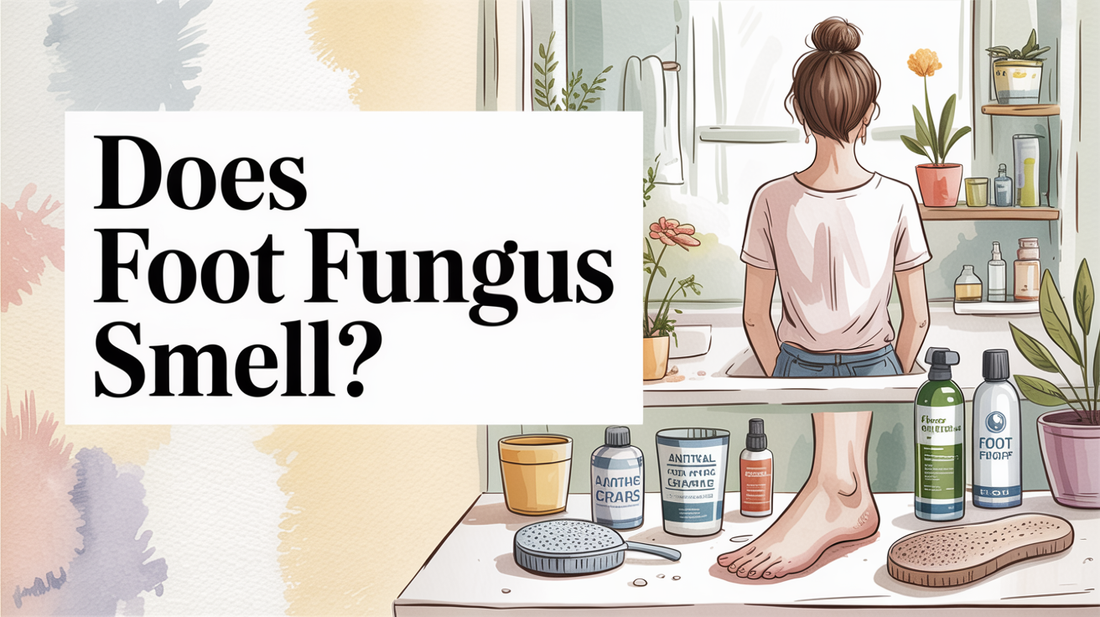Does foot fungus smell?
fungal odor causes, bromodosis bacteria, sweat management — If you've noticed a distinct smell coming from your feet, you're not alone. Fungal infections can lead to unpleasant odors due to the combination of fungal metabolites and the activity of bacteria that thrive in moist environments. This blog is organized into three sections to help you understand why foot fungus smells, how to manage it, and when to seek professional help.
Why It Smells: Fungi + Bacteria 🧭
Foot fungus is notorious for creating unpleasant odors, primarily due to the breakdown of keratin by fungi, which produces various odorous compounds. In addition, bacteria like those responsible for bromodosis flourish in the warm, moist environment typical of fungal infections and excessive sweating, further intensifying the smell. By keeping your feet clean and dry, you can mitigate these odors.
- Fungal infections generate organic acids and sulfur compounds that contribute to foot odor.
- Bacteria thrive on dead skin cells and sweat, producing even more malodorous substances.
- Warm and damp conditions are a perfect breeding ground for both fungi and bacteria.
- Bromodosis-causing bacteria, like Brevibacterium, emit pungent, cheese-like odors.
- Poor ventilation in shoes can trap moisture and concentrate these odor-producing microorganisms.
Try It Tonight: Calm, Fresh Feet ✨
- Wash your feet with warm water and a mild cleanser, ensuring to dry thoroughly between the toes.
- Apply a small amount of Kissable Feet where needed; massage until absorbed.
- Allow your feet to breathe; consider wearing breathable socks if desired, and patch-test first if new to this foot cream.
Odor‑Cutting Routine That Works ✨
Creating an effective routine to combat foot odor involves a combination of antifungal treatments, moisture management, and good hygiene practices. Addressing both the fungal infection and the conditions that allow bacteria to thrive is key to achieving long-lasting results.
- Incorporate antifungal creams or powders regularly, looking for ingredients like terbinafine or clotrimazole.
- Utilize moisture-wicking foot powders or antiperspirants to control sweating.
- Rotate your shoes daily and consider using moisture-absorbing insoles or cedar shoe trees.
- Wash your feet with antibacterial soap and ensure they are thoroughly dried, particularly between the toes.
- Opt for breathable footwear materials like leather or mesh and choose moisture-wicking socks.
Why We Recommend a Gentle Helper 🌿
Kissable Feet is designed for quick absorption and provides a soothing, non-stinging experience. This nurse-crafted blend featuring tea tree, coconut, and calendula aims to deliver comfort and a clean finish, making it a breeze to incorporate into your nightly care routine.
- Fast-absorbing formula that leaves no greasy residue.
- Gentle sensation ideal for sensitive, tired feet.
- Clean, bedtime-friendly scent that refreshes your feet.
When Odor Signals Something Else 🔍
While fungal infections are a common cause of foot odor, persistent or unusual smells may indicate other underlying health issues that require attention. Understanding the characteristics of these odors can help you differentiate between typical fungal concerns and more serious health matters.
- Fruity or sweet foot odors might suggest diabetes-related complications.
- Ammonia-like smells could indicate kidney issues or protein breakdown.
- A sudden increase in odor accompanied by pain or swelling may signify bacterial cellulitis.
- Persistent foot odor despite treatment may highlight antibiotic-resistant infections.
- Unusual metallic odors might point to circulation problems or side effects from medications.

